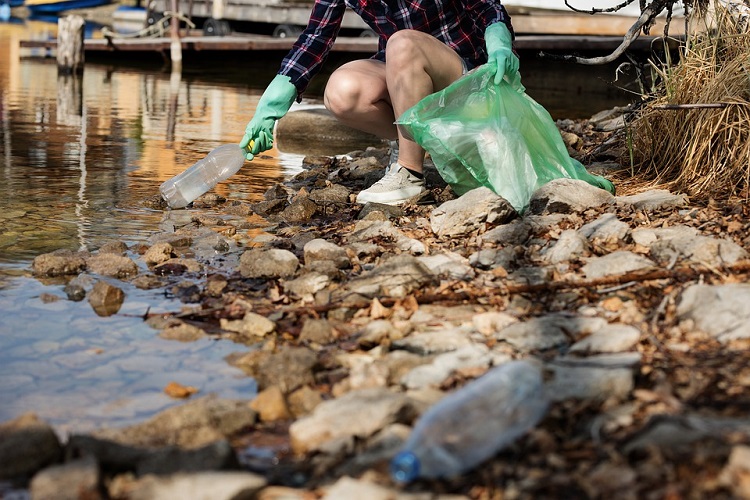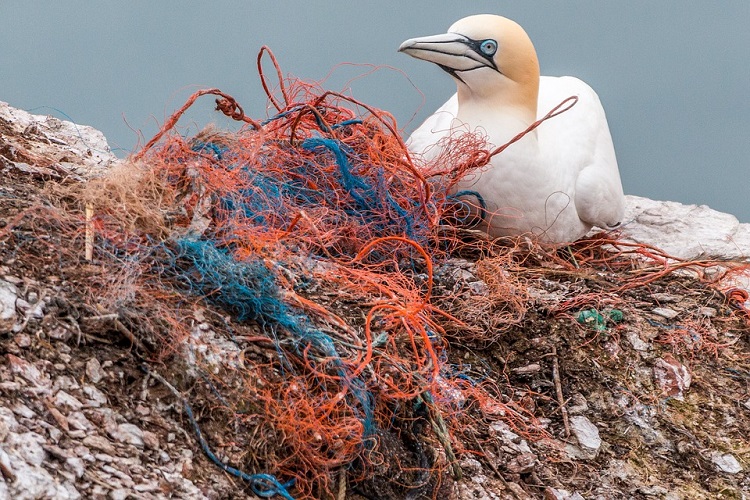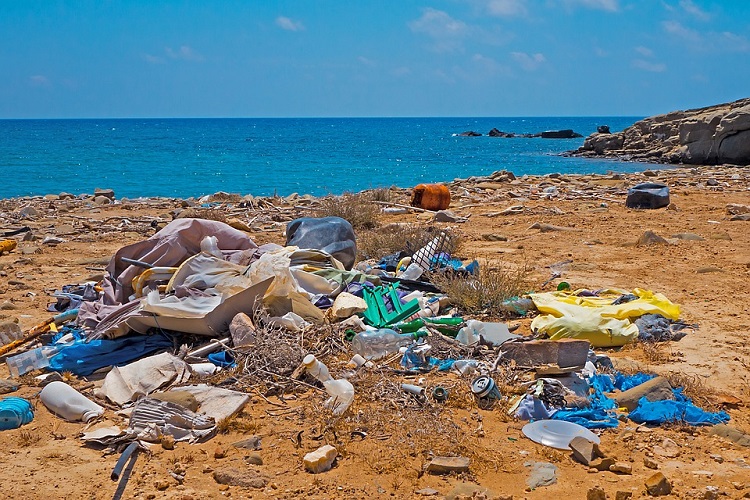
We continue to produce plastic to feed the ever-growing consumer demands, and more plastic equals more waste. If current production and waste management trends continue, it’s estimated that roughly 12,000 Mt (metric tonnes) of plastic waste will be in landfill or in the natural environment by the year 2050, according to a recent study.
In India the plastic problem now affecting its coasts and oceans is “severe and alarming” with nearly 87% of waste not managed adequately. The problem is so bad that it’s officially classed as a serious issue in the country and plastic waste is presenting a high risk of polluting both rivers and ocean.
 NRI scientists and a team from Catalyst Group, India, are developing site specific research and interventions on reducing ocean plastic in a multi-disciplinary collaboration with a range of institutions in the country. NRI Associate Professor Ravinder Kumar, an expert in monitoring and impact, explains the problem: “In India, mis-managed waste is dumped without proper sorting and treatment, and untreated waste-water carrying plastic debris goes to shared waterways like river systems and streams. This then mixes with waste from the fishing industry leading to accumulated plastic waste in the ocean.”
NRI scientists and a team from Catalyst Group, India, are developing site specific research and interventions on reducing ocean plastic in a multi-disciplinary collaboration with a range of institutions in the country. NRI Associate Professor Ravinder Kumar, an expert in monitoring and impact, explains the problem: “In India, mis-managed waste is dumped without proper sorting and treatment, and untreated waste-water carrying plastic debris goes to shared waterways like river systems and streams. This then mixes with waste from the fishing industry leading to accumulated plastic waste in the ocean.”
“Once the plastic reaches the ocean only 1% will float, 5% will end up on the shoreline and the rest, 94%, will simply sink to the seabed where it will break down into smaller pieces and cause secondary effects. More worryingly, a major part will disintegrate into micro plastic.”
Ms. Poornima Sheelanere, lead researcher from Catalyst Management Services (CMS), reports that the situation has become significantly worse in recent years with Indian fishermen catching more plastic than fish in their nets. The experts say that serious issues call for serious measures as it’s not just the fishermens’ livelihoods at stake.
Plastic debris causes the deaths of more than a million seabirds every year, as well as more than 100,000 marine mammals. It is harming in excess of 800 different species of sea-life, and it’s now accepted that marine microplastic debris may compromise human food security, food safety and health, as microplastics have been detected in drinking water, commercial seafood and other food items.
800 different species of sea-life, and it’s now accepted that marine microplastic debris may compromise human food security, food safety and health, as microplastics have been detected in drinking water, commercial seafood and other food items.
It would seem that collaboration is key when it comes to tackling such a monumental problem, so it’s good news that retailer Marks & Spencer is working with Swasti (a Health Catalyst group organisation), on a 'circular economy' solution to deal with plastic clothes hangers. Together they aim to find solutions in the form of a social enterprise called ‘Noble Plastic’, a scheme designed to address the issue of both ‘ocean-bound’ plastic, and plastic that’s already in the ocean.
NRI is providing technical and financial support to CMS ‘Noble Plastic’, conducting formative research that can aid in intervention planning. Shiv Kumar, founder of the CMS Catalyst group explains: “we need to understand and tackle underlying and inter-connected factors such as geological context, inadequate awareness and incentives, and improper management of solid waste. This would require both intensive research and actions at specific sites in India, where the problems are found to be severe.” NRI with CMS Noble Plastics (a Catalyst group entity) have already started the work on this.
The legislative response to plastic waste in India has been one of strong intentions and weak implementation. The challenge lies in implementing these laws with complete compliance across the board. In India there are many ongoing initiatives to learn from such as Friends of Marine Life, Afroz Shah, the Suchitwa Sagaram Initiative, Plastics for Change to name but a few, but without pressure from all sides, none seems to be able to get a sufficient grip on the problem.
 India could take its cue from regulatory initiatives such as the UK Plastic Pact, which brings together businesses from across the entire plastics value chain with UK governments and NGOs to tackle the scourge of plastic waste.
India could take its cue from regulatory initiatives such as the UK Plastic Pact, which brings together businesses from across the entire plastics value chain with UK governments and NGOs to tackle the scourge of plastic waste.
“Essentially, if waste could be locally collected at specific ‘hotspots’ in India, then technological advances mean that it could be dealt with efficiently and correctly and not end up in the sea”, Prof Kumar explains: “if there was intervention for recycling of local plastic waste, management of plastic waste at source, the adoption of efficient waste management systems, strict enforcement of legislation, enhanced public awareness and student education on waste management, then we might be able to make a huge difference in a relatively short space of time. The use of trawling boats to retrieve plastic from the ocean is one of the most effective ways of gathering the pollution that is already there, but awareness creation and waste reduction are key to stopping more plastic entering the seas.”
To find out more about:
Livelihoods and Institutions Department, NRI
Swasti Health Catalyst Engagement
The Suchitwa Sagaram Initiative
The Plastics Waste Management Rules 2016

